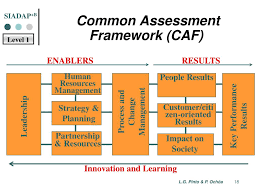Introduction
The Common Assessment Framework (CAF) was designed in response to the “Every Child Matters” agenda, a government policy in the United Kingdom aimed at improving the lives of children and young people from birth to age 19. This comprehensive approach takes into account a child’s needs, considering their education, health, safety, and social development. In this article, we will explore the significance of the Common Assessment Framework and how it contributes to the “Every Child Matters” initiative.
The Origin of Every Child Matters and CAF
“Every Child Matters” was introduced in 2003 after an inquiry into the death of Victoria Climbié, a young girl who suffered gross negligence and abuse. This tragic event led to the realization that there was a dire need for better collaboration between agencies responsible for child welfare. Consequently, the government drafted the Children Act 2004, which established a legal framework for children’s services to follow.
In tandem with this legislation, the Common Assessment Framework was developed, providing a tool for practitioners across various fields to identify children’s needs and determine appropriate support early on.
Key Principles of CAF
The Common Assessment Framework is characterized by its holistic and child-centered approach. Key principles of CAF include:
1. Early intervention: By identifying problems early on, timely support can be provided before issues escalate further.
2. Collaboration: Encouraging cooperation between different agencies to ensure seamless support.
3. Information sharing: Allowing practitioners to share relevant information about a child’s background and needs to offer efficient and tailored services.
4. Inclusiveness: Prioritizing the involvement of children and families in making decisions about their care.
5. Equality: Ensuring that all children receive equal opportunities regardless of their background or circumstances.
CAF Process
The CAF process consists of four stages:
1. Pre-assessment checks: The initial step involves determining if CAF is the right assessment tool for the child, considering previous assessments and consultations with other professionals.
2. Assessment: Engaging in discussions with the child, family, and relevant professionals to gather a comprehensive understanding of the child’s needs, strengths, and challenges.
3. Delivery plan: Developing a tailored strategy to address identified needs and designating a lead professional to ensure effective coordination.
4. Review: Regularly evaluating progress and amending the delivery plan as necessary to achieve desired outcomes.
The Impact of CAF on Children and Families
Since its inception, the Common Assessment Framework has brought about significant improvements in children’s services. By fostering enhanced collaboration between agencies, it has facilitated better access to support for children with complex needs. Additionally, its goal-oriented approach ensures that interventions can be adapted as circumstances change, promoting continuous improvement.
Overall, the Common Assessment Framework represents an essential component of the “Every Child Matters” agenda. By promoting early intervention, partnership working, and tailored support, CAF helps ensure that every child has the opportunity to thrive.





